Now that’s what I call ridin’ the dog.
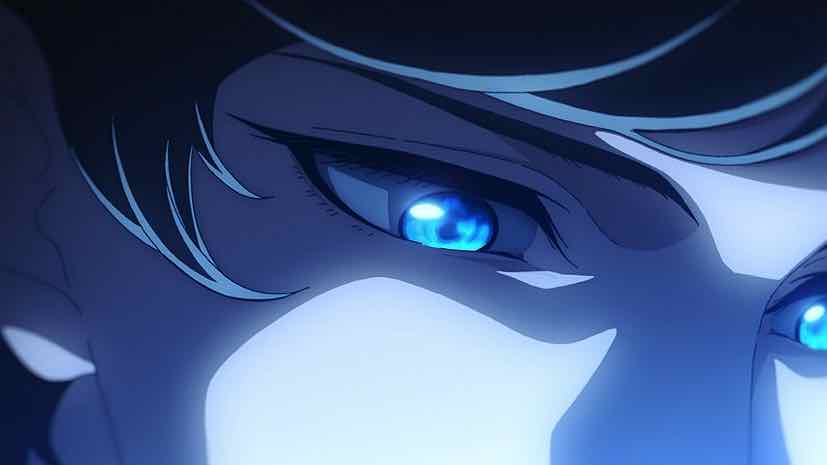 Stay with me here. I’ve been using the “Dari” spelling for the older brother here, because that’s the Romanization of the title. But it hit me like a ton of bricks with this surrealist masterstroke of an episode – “Dali”. I have no idea if Sano Nami was going for this in any way, but Migi and Dali has a definite Dali-esque quality to it. If you recall, I was struggling last week with how to categorize this series:
Stay with me here. I’ve been using the “Dari” spelling for the older brother here, because that’s the Romanization of the title. But it hit me like a ton of bricks with this surrealist masterstroke of an episode – “Dali”. I have no idea if Sano Nami was going for this in any way, but Migi and Dali has a definite Dali-esque quality to it. If you recall, I was struggling last week with how to categorize this series:
There’s surrealism here to be sure, some absurdism, obviously black comedy. Maybe satire as much as anything. Maybe it’s its own genre, though I can’t imagine too many writers trying to follows in its footsteps, and sadly we won’t be seeing any more works from the author.
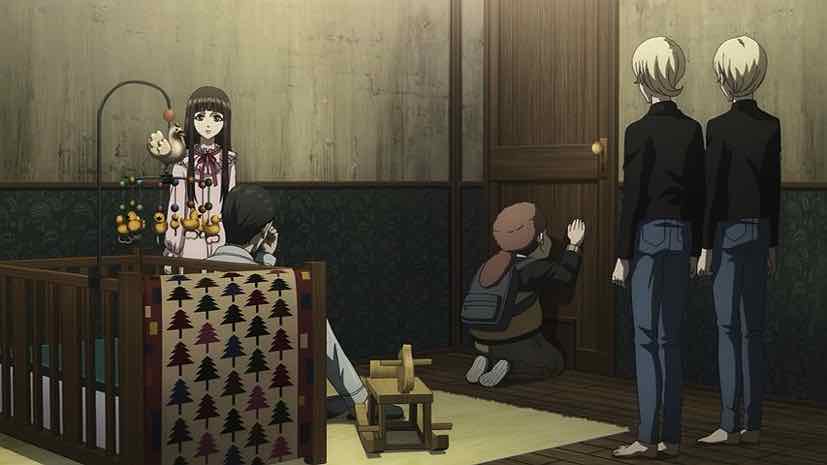 Salvador Dali was a surrealist to be sure – in some eyes, the surrealist. But it was a very particular sort of surrealism, and that comes across clearly in his film work – like Luis Buñuel’s Un Chien Andalou, which Dali co-wrote, and the dream sequence from Alfred Hitchcock’s Spellbound (which he created). This may be completely coincidental – I have no idea and we’ll likely never know. But that genre I was searching for last week is definitely “Dali-esque”, and this episode more so than any other.
Salvador Dali was a surrealist to be sure – in some eyes, the surrealist. But it was a very particular sort of surrealism, and that comes across clearly in his film work – like Luis Buñuel’s Un Chien Andalou, which Dali co-wrote, and the dream sequence from Alfred Hitchcock’s Spellbound (which he created). This may be completely coincidental – I have no idea and we’ll likely never know. But that genre I was searching for last week is definitely “Dali-esque”, and this episode more so than any other.
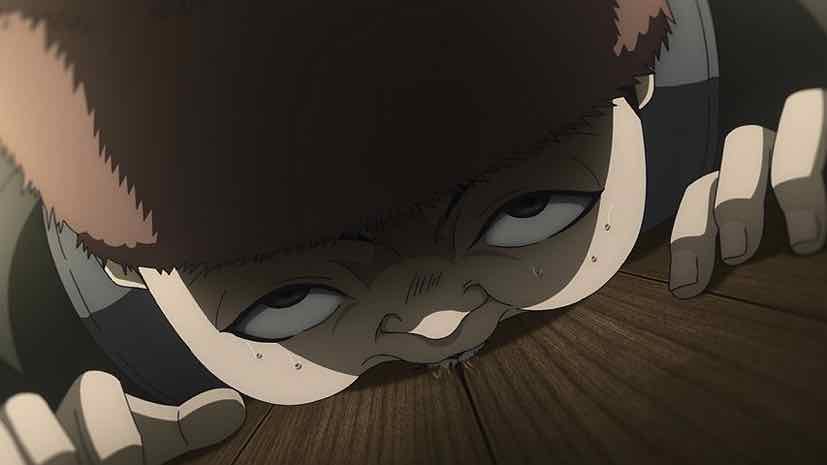 This danse macabre at the Ichiyama estate is truly one of the most outrageous set pieces I’ve seen in anime for a long time. It’s art, no question about it. As Eiji sets fire to the big house with the little house and sets about dying with his mother, the others are trapped in the re-education room. Karen rightly marvels at how hopelessly out of touch Akira is, Maruta-kun sets about trying to beaver through the door, and Migi decides to use his head. None of it makes much headway (pun intended), but fortunately Akiyama-kun arrives in time to save the day like the twisted superhero freak he is.
This danse macabre at the Ichiyama estate is truly one of the most outrageous set pieces I’ve seen in anime for a long time. It’s art, no question about it. As Eiji sets fire to the big house with the little house and sets about dying with his mother, the others are trapped in the re-education room. Karen rightly marvels at how hopelessly out of touch Akira is, Maruta-kun sets about trying to beaver through the door, and Migi decides to use his head. None of it makes much headway (pun intended), but fortunately Akiyama-kun arrives in time to save the day like the twisted superhero freak he is.
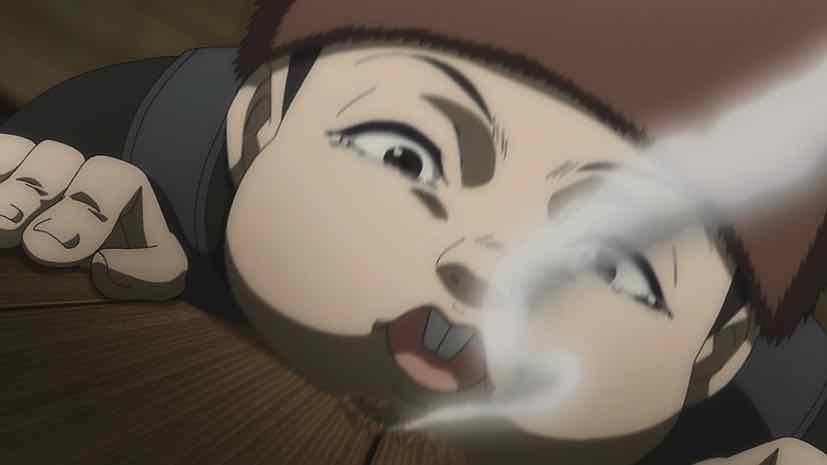 All this builds up to everyone jumping out the second-story window, with Akira getting tangled in the barbed wire (which is, you know, totally a normal thing to surround a suburban Japanese house with). But Akiyama’s flaming departure on his canine steed was a thing of surrealist beauty if ever there was one. The only problem? Eiji is still inside, and now that they know the truth it’s not so easy for Migi and Dari to leave him there to die. Eventually Dari goes in after him, finding him in the bedroom waxing poetical about being a perfect son to his perfect mother. Migi’s entrance takes us on a detour to Python-esque absurdism, but this is some pretty serious business going down here.
All this builds up to everyone jumping out the second-story window, with Akira getting tangled in the barbed wire (which is, you know, totally a normal thing to surround a suburban Japanese house with). But Akiyama’s flaming departure on his canine steed was a thing of surrealist beauty if ever there was one. The only problem? Eiji is still inside, and now that they know the truth it’s not so easy for Migi and Dari to leave him there to die. Eventually Dari goes in after him, finding him in the bedroom waxing poetical about being a perfect son to his perfect mother. Migi’s entrance takes us on a detour to Python-esque absurdism, but this is some pretty serious business going down here.
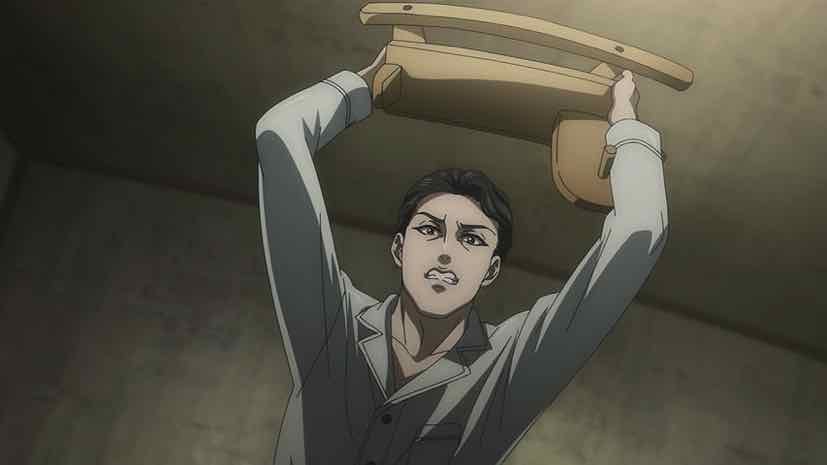 Eiji is a seriously, prodigiously messed up kid. He’s committed double-matricide, which even among murderers has to be a pretty rare accomplishment. But I have sympathy for him, because anyone growing up under Reiko’s smothering attention is going to be a major nutburger. Karen is the lucky one – her “mother” not giving a fig about her allowed her to grow up relatively (and that’s an important qualifier) sane. Dali is far too arrogant to admit that he wants to save his brother – he has to mask it in terms of “revenge” by forcing Eiji to live with what’s happened. But make no mistake, Eiji being their brother is the reason he’s doing this. And there’s always Migi’s cherry pie…
Eiji is a seriously, prodigiously messed up kid. He’s committed double-matricide, which even among murderers has to be a pretty rare accomplishment. But I have sympathy for him, because anyone growing up under Reiko’s smothering attention is going to be a major nutburger. Karen is the lucky one – her “mother” not giving a fig about her allowed her to grow up relatively (and that’s an important qualifier) sane. Dali is far too arrogant to admit that he wants to save his brother – he has to mask it in terms of “revenge” by forcing Eiji to live with what’s happened. But make no mistake, Eiji being their brother is the reason he’s doing this. And there’s always Migi’s cherry pie…
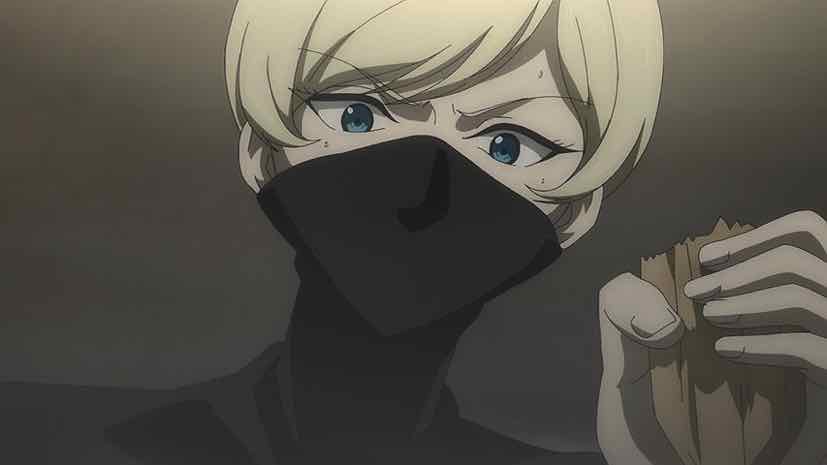 Miichan showing up as a sort of spectral Mary Poppins to save the boys is probably the least strange thing that happened in this episode, which kind of says it all. Eiji may have been dragged back from the brink of suicide, but he claims ownership for his crimes – and in confessing to Miichan’s murder, presumably one of his stepmother’s too. He’s going away for a while, one would assume, but in the process clearing the way for his brothers to return to their life at the Sonoyama’s house. Things are hardly resolved, however – “Hitori” is going to have a lot of explaining to do when he gets home.
Miichan showing up as a sort of spectral Mary Poppins to save the boys is probably the least strange thing that happened in this episode, which kind of says it all. Eiji may have been dragged back from the brink of suicide, but he claims ownership for his crimes – and in confessing to Miichan’s murder, presumably one of his stepmother’s too. He’s going away for a while, one would assume, but in the process clearing the way for his brothers to return to their life at the Sonoyama’s house. Things are hardly resolved, however – “Hitori” is going to have a lot of explaining to do when he gets home.


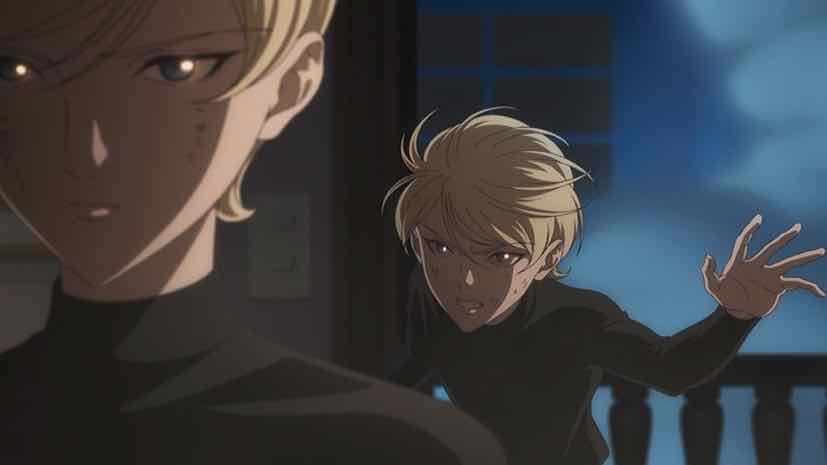
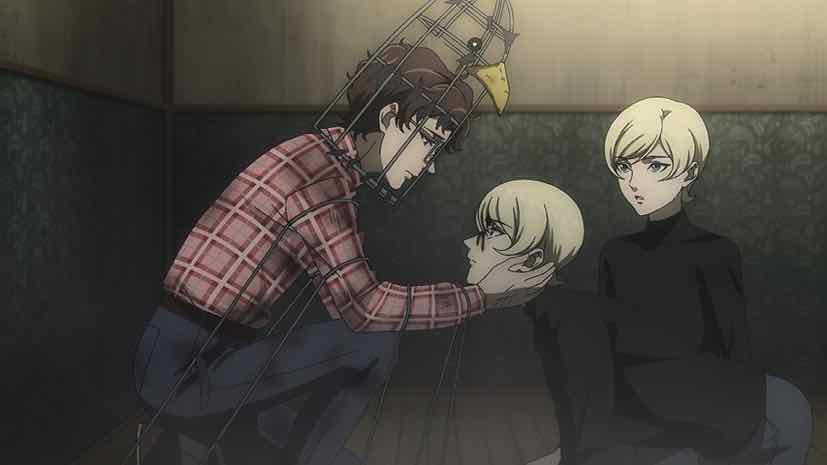
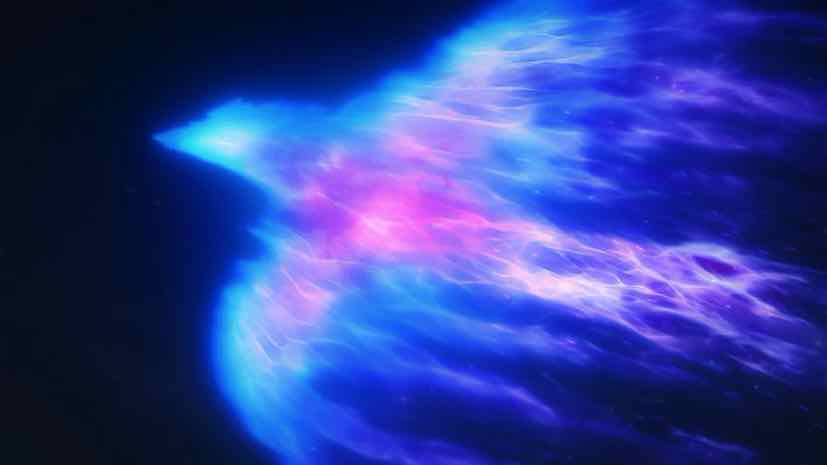
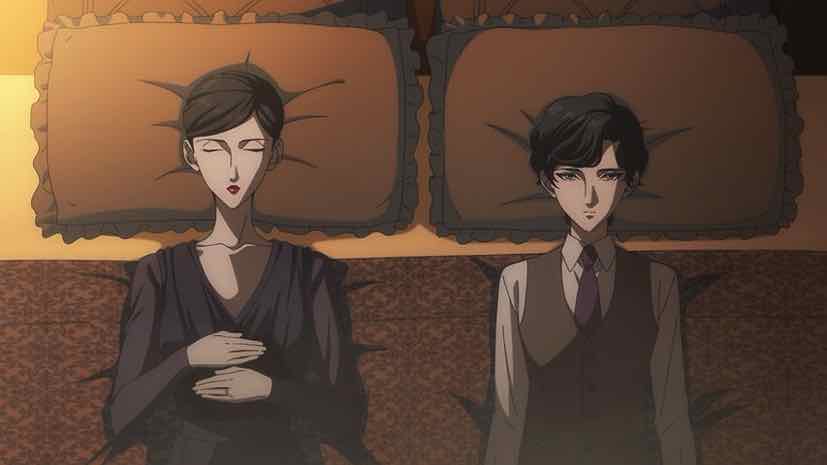
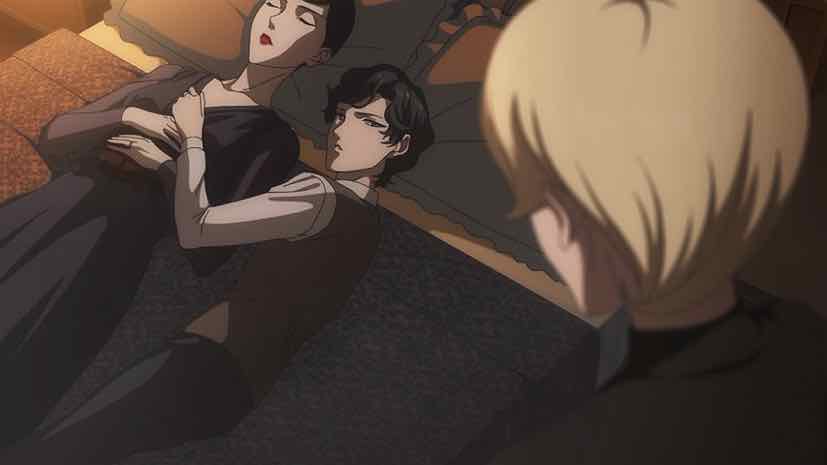
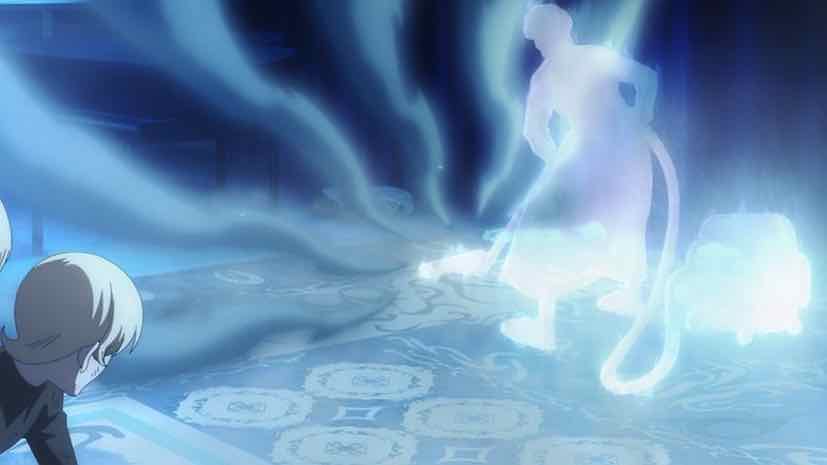
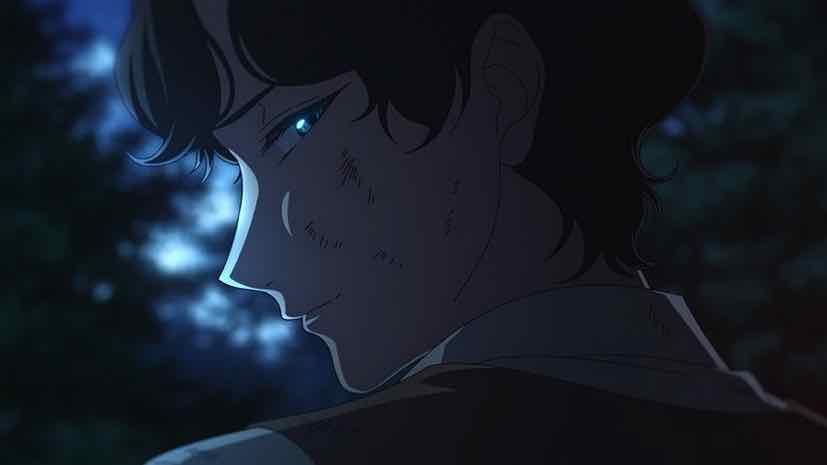
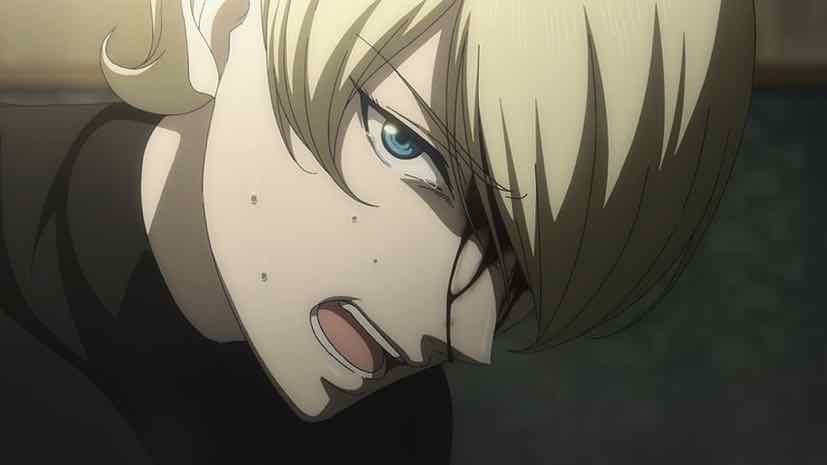
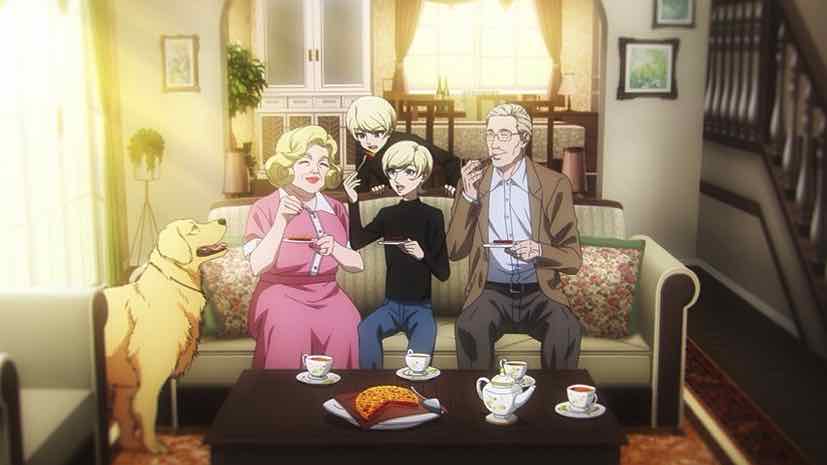
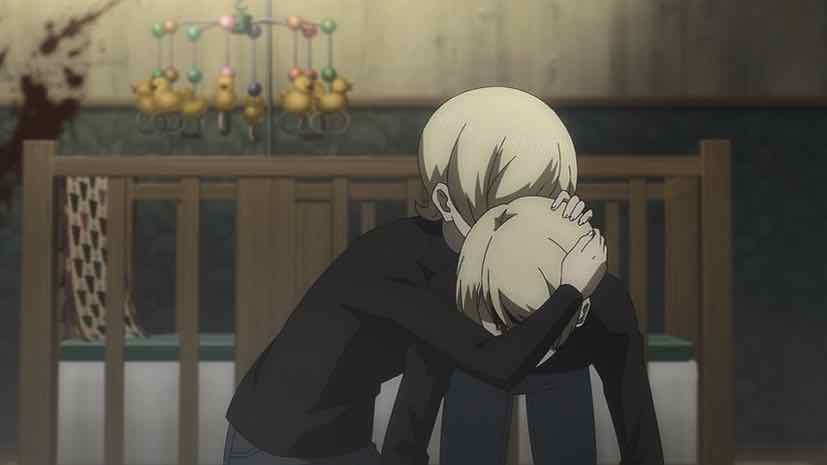
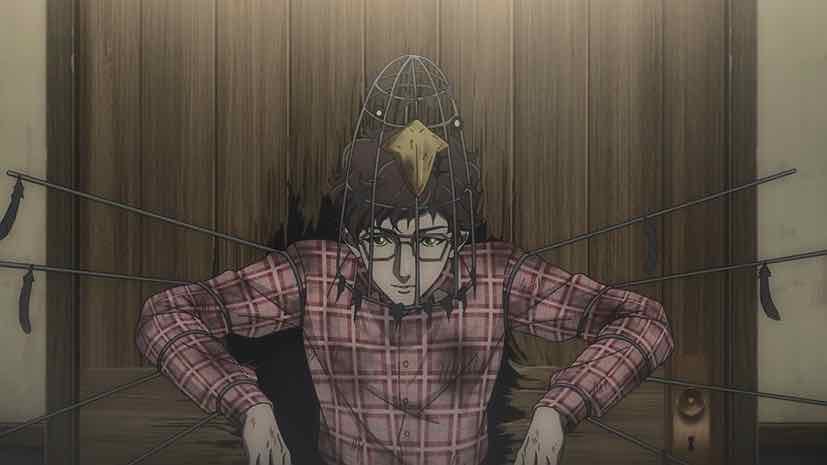
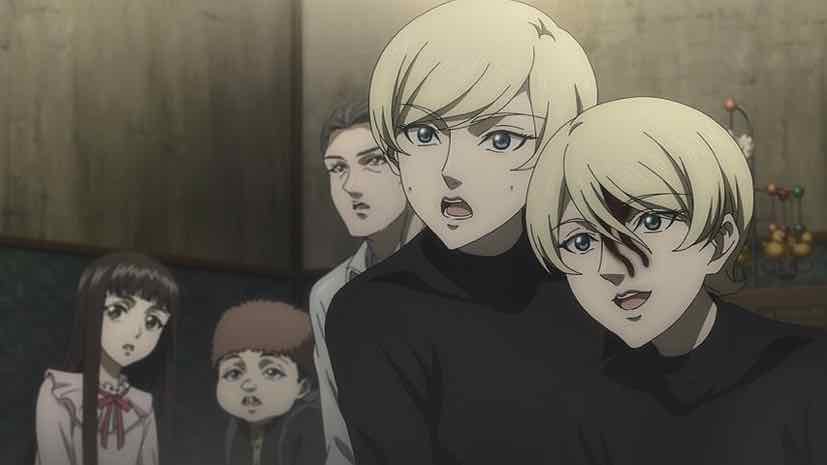
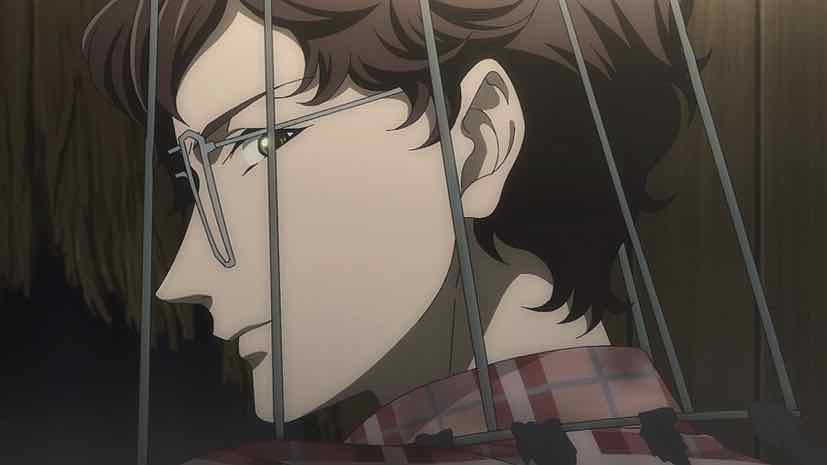
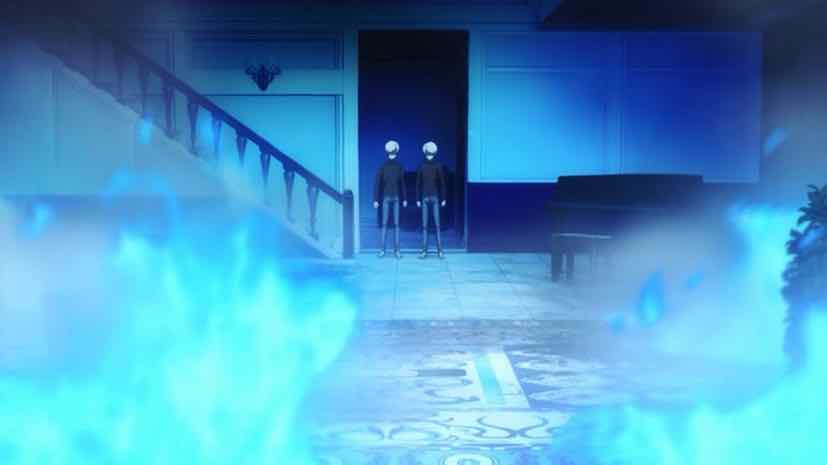
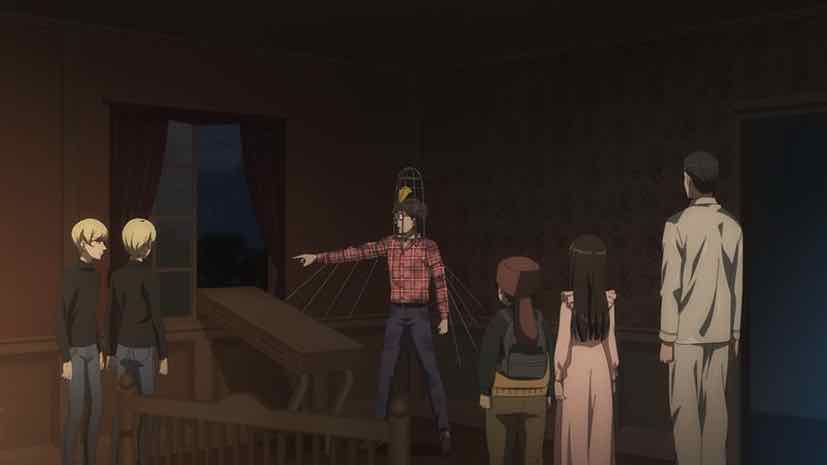
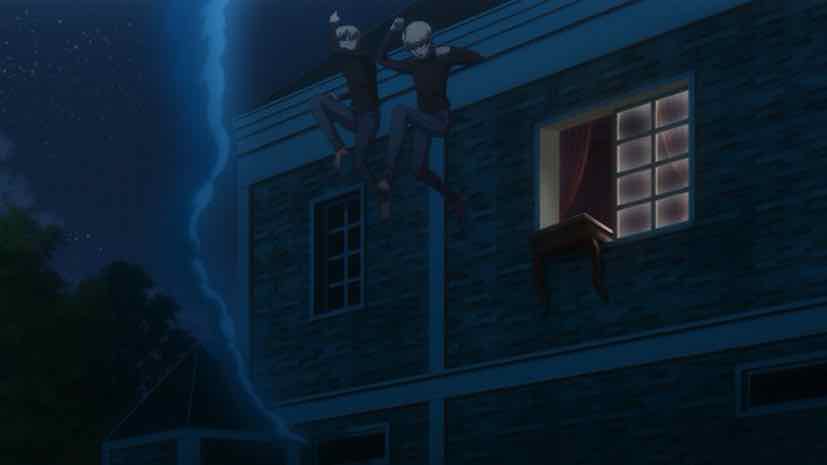
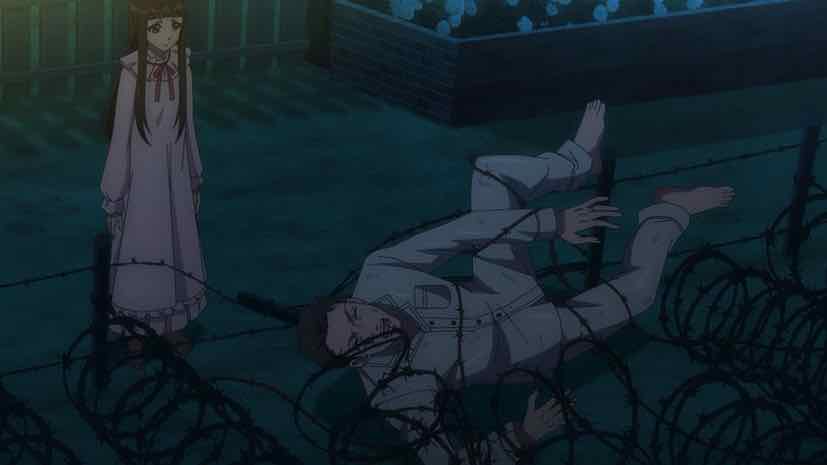
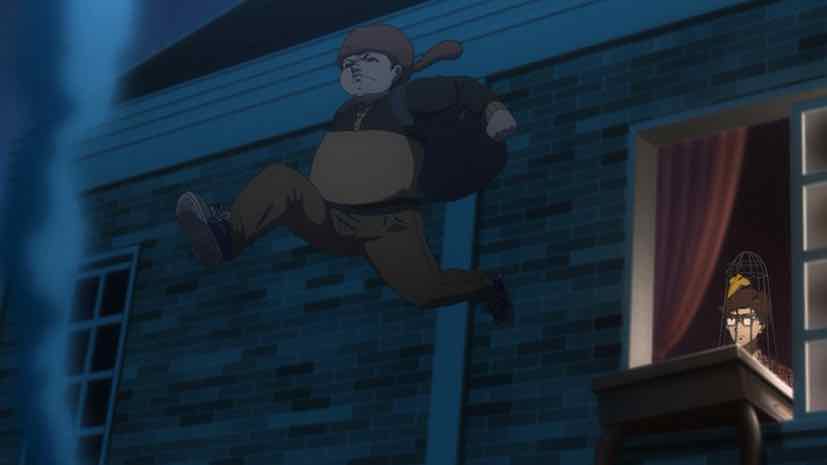
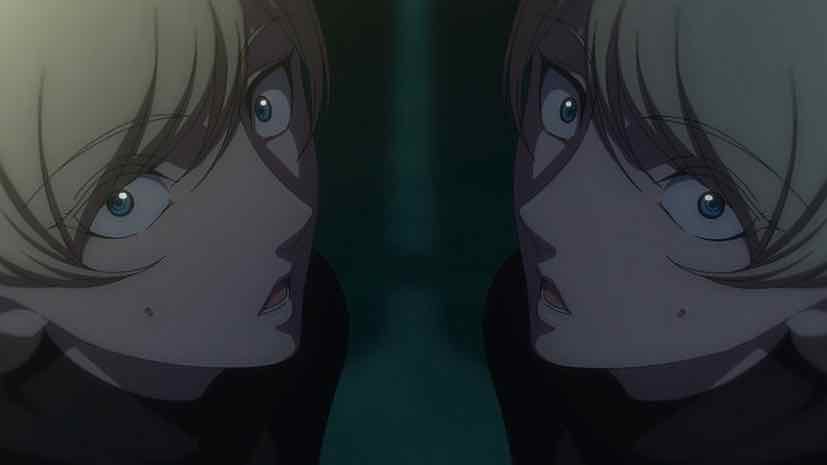
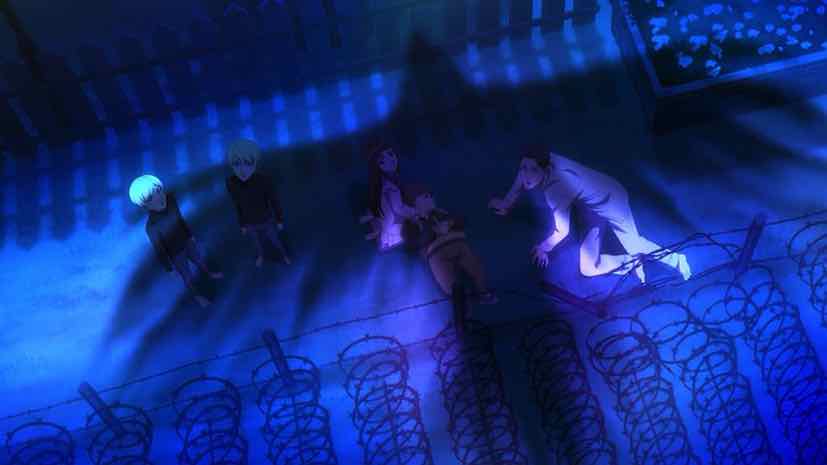
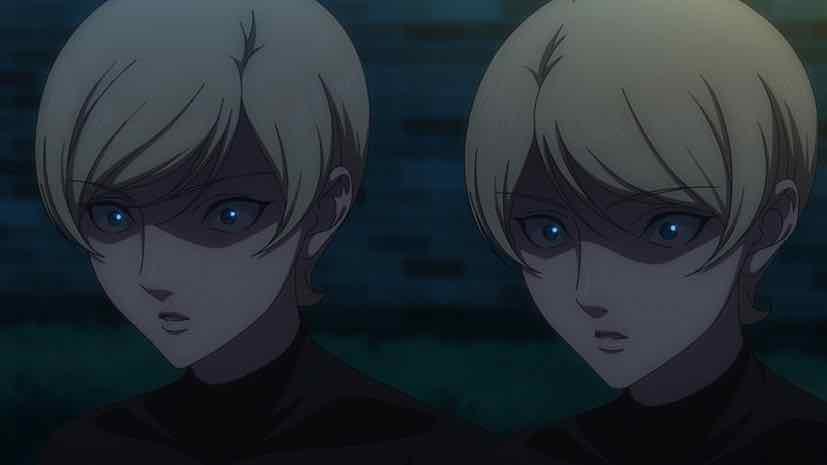
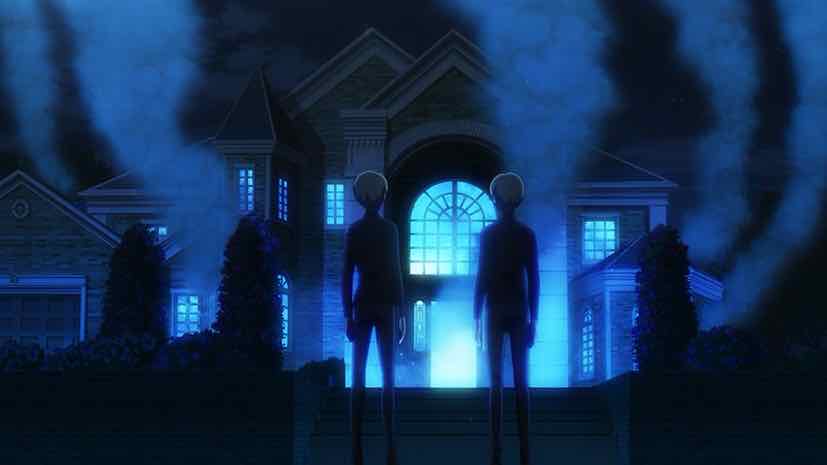
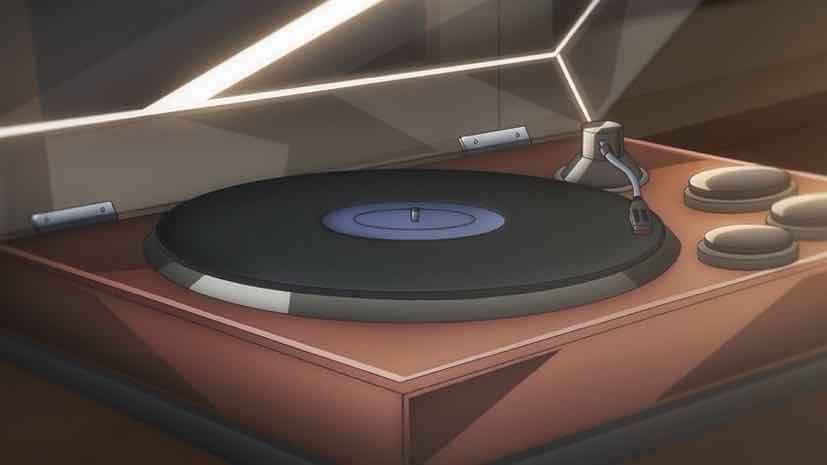
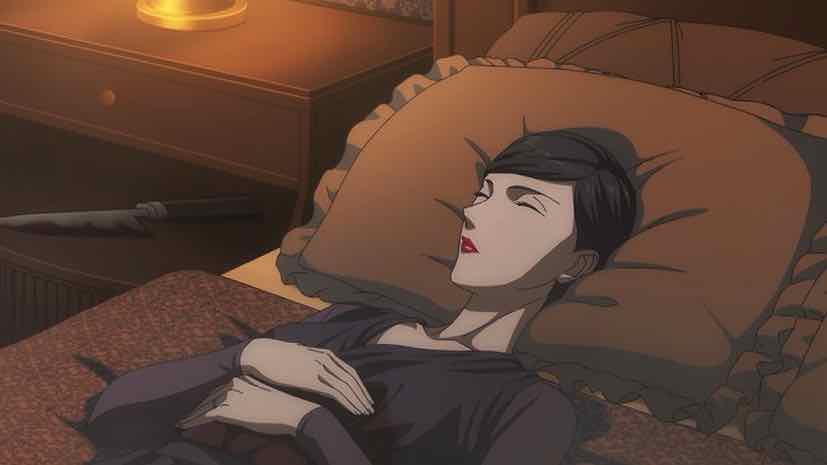
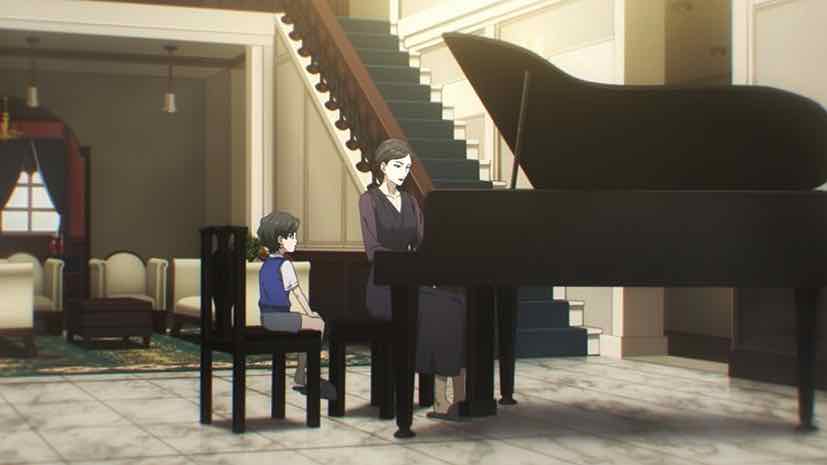
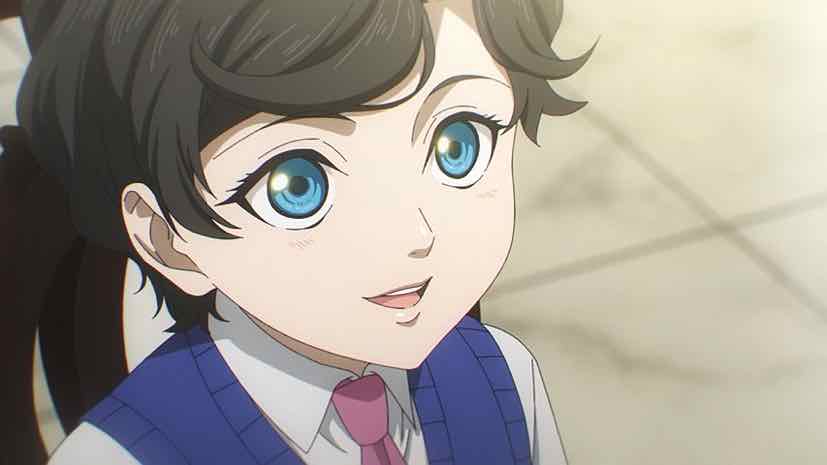
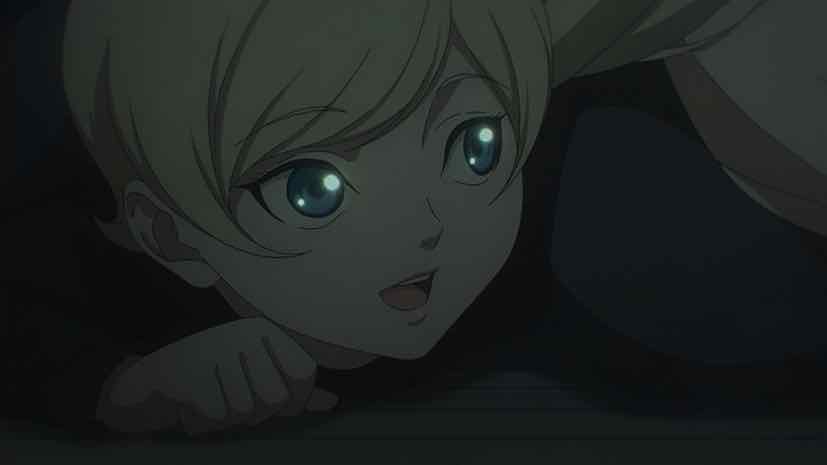
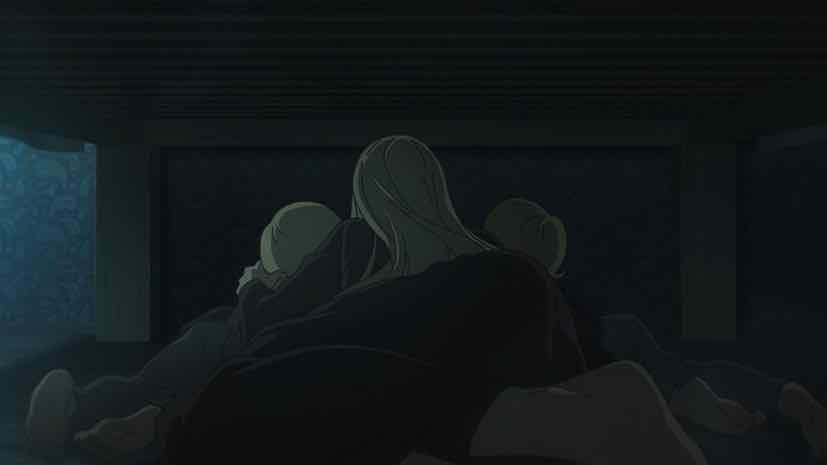
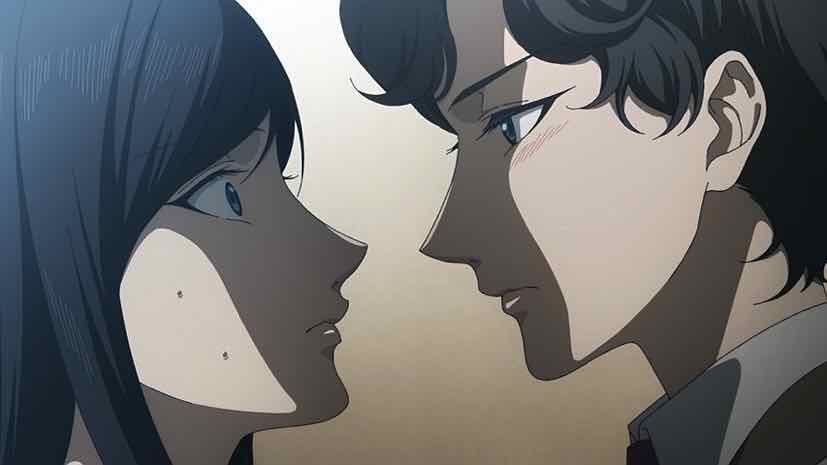
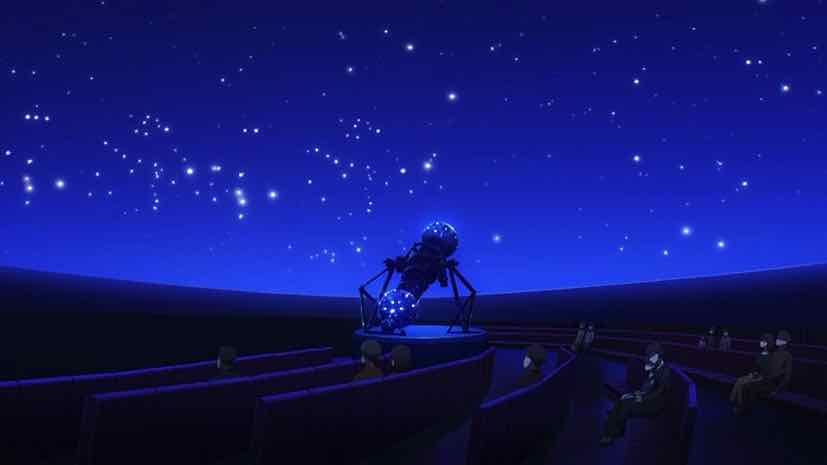
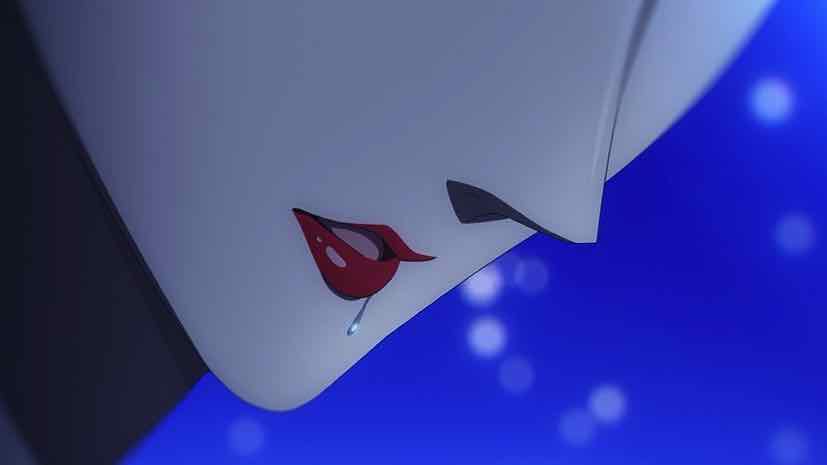
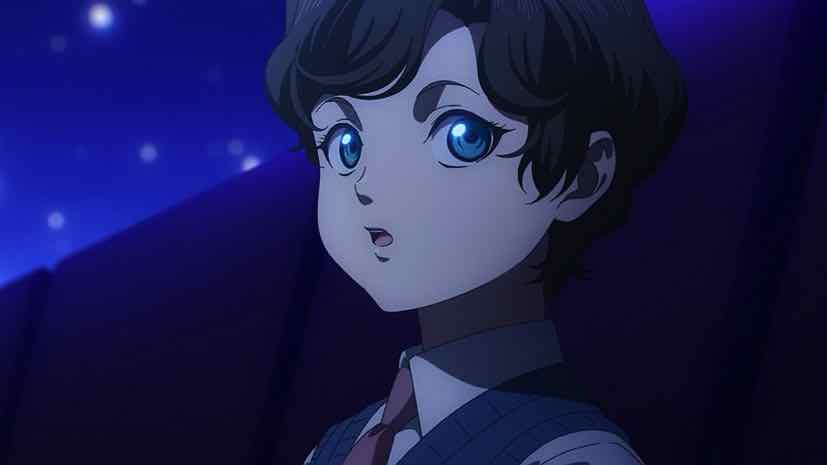
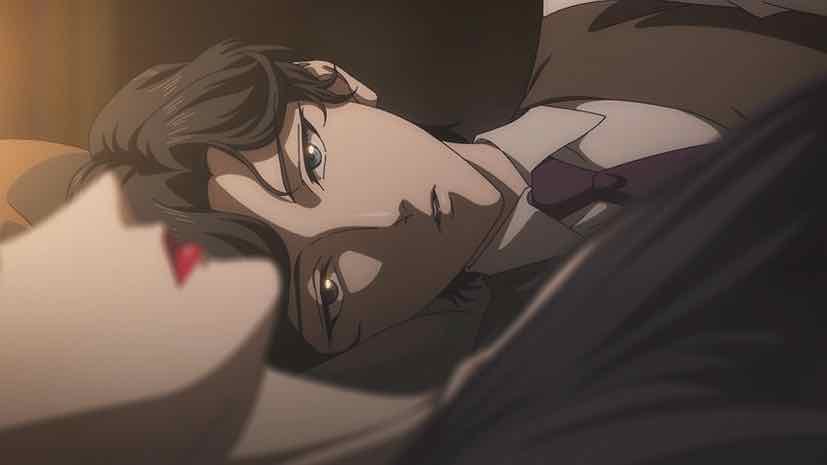
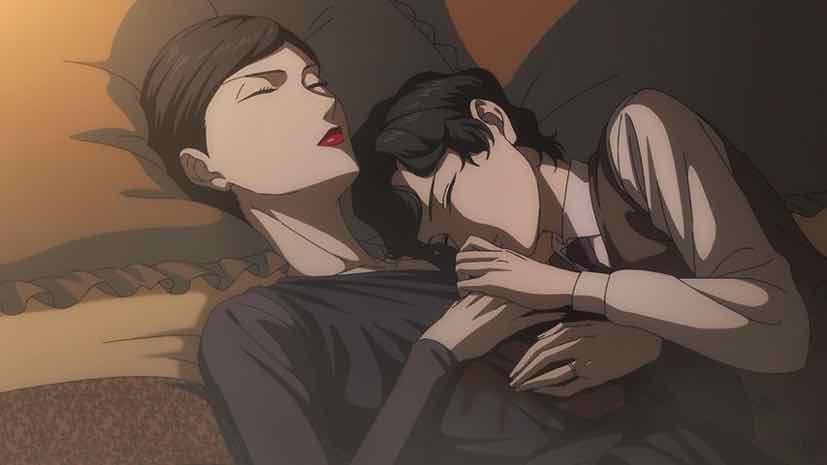
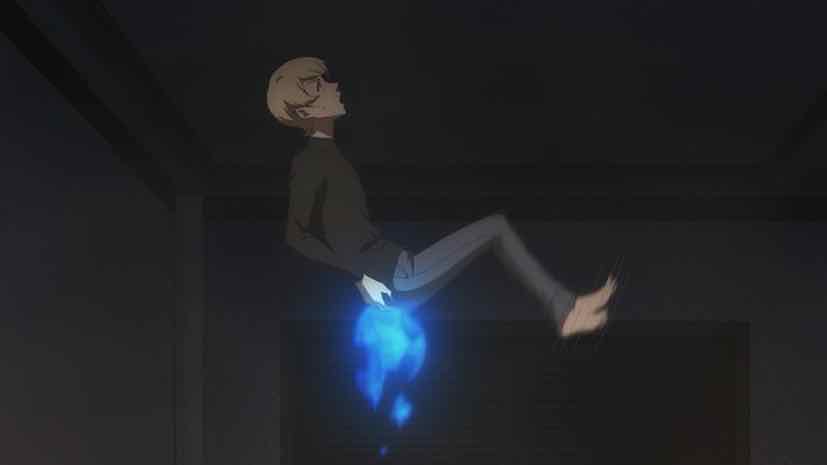
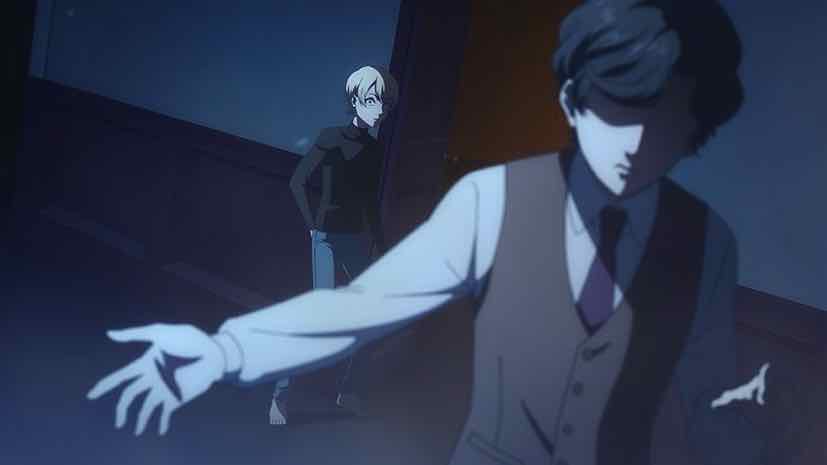
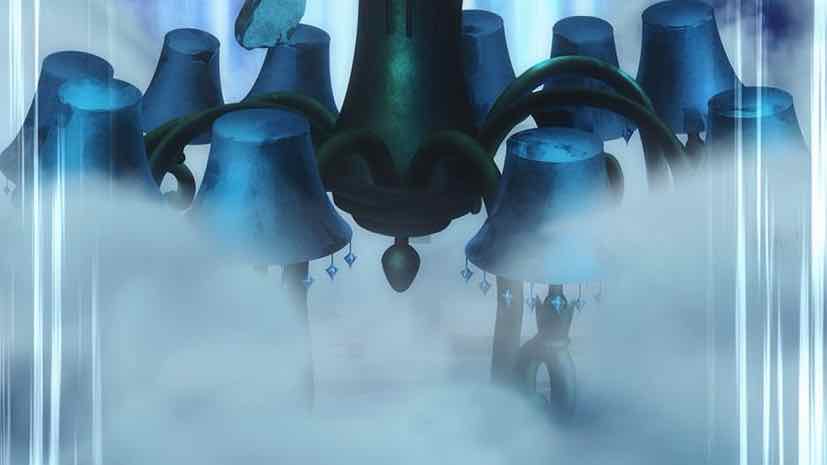
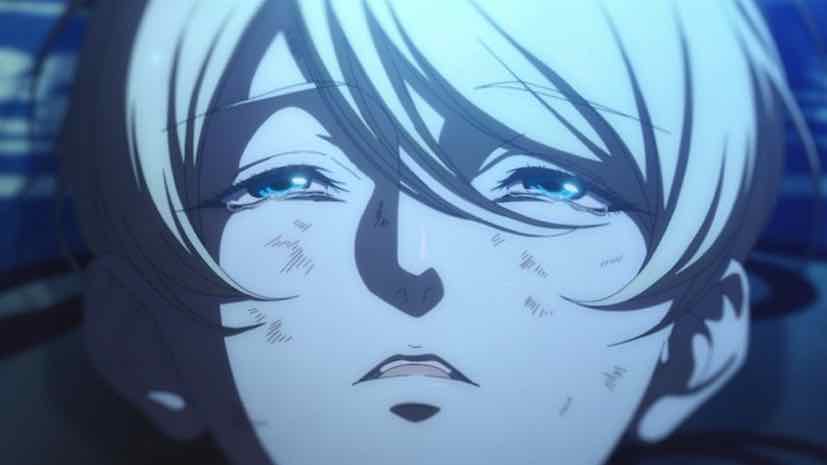
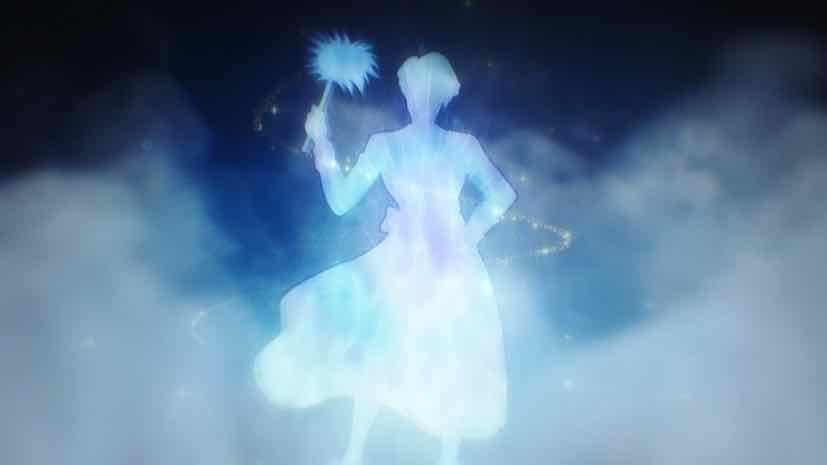
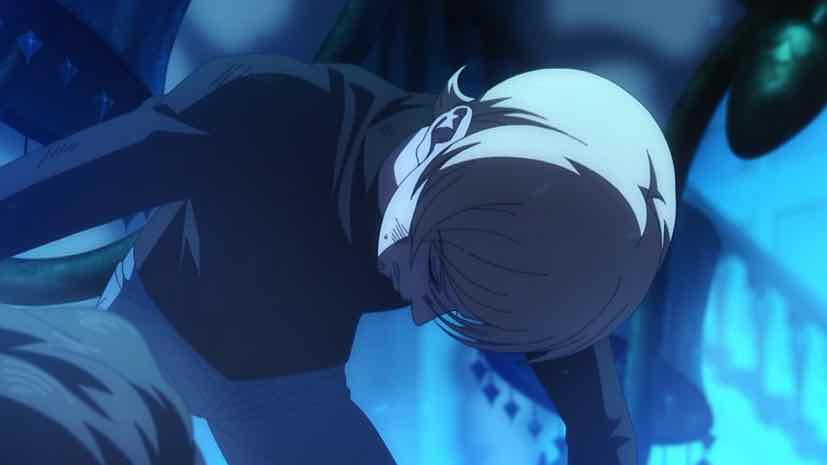
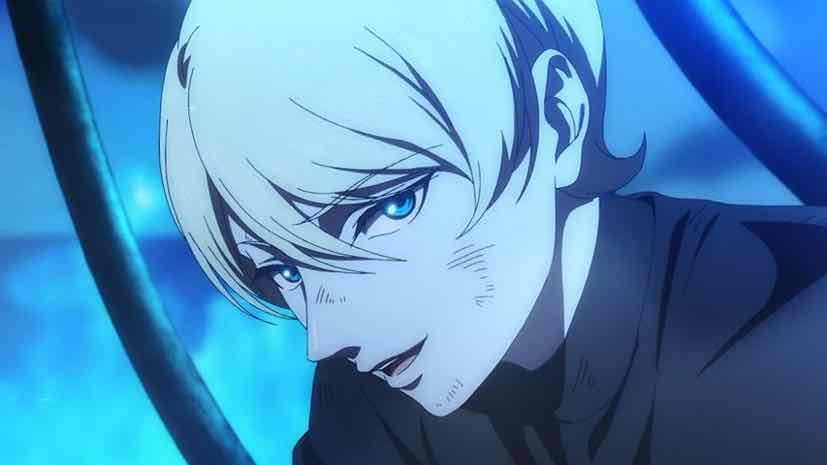
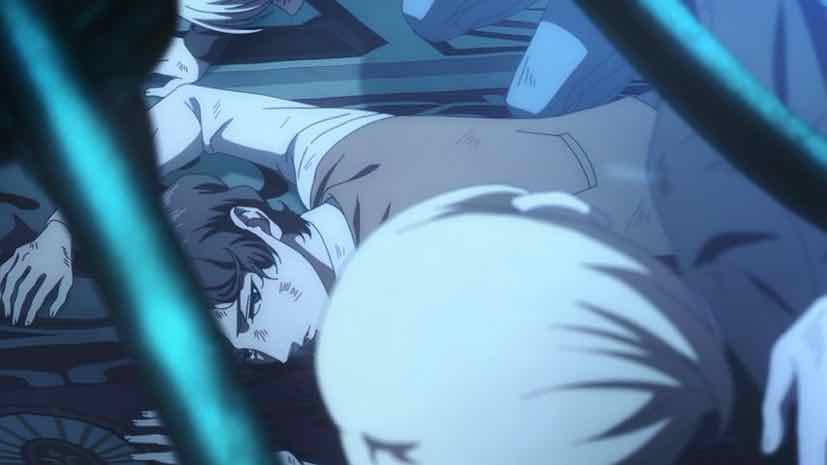
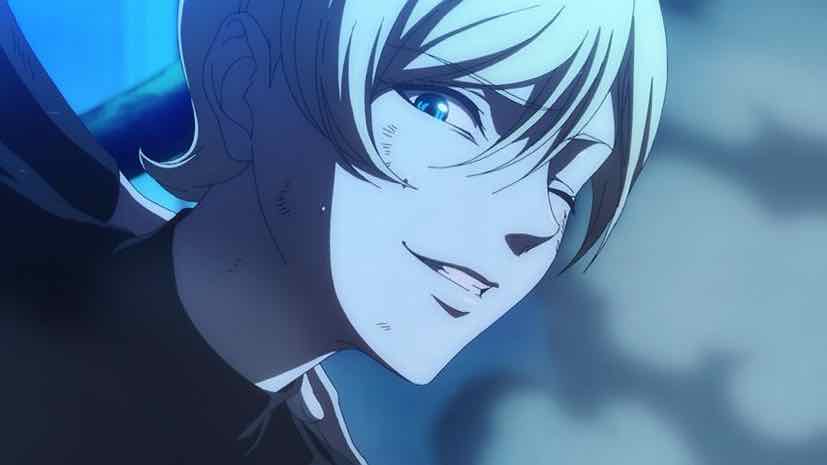
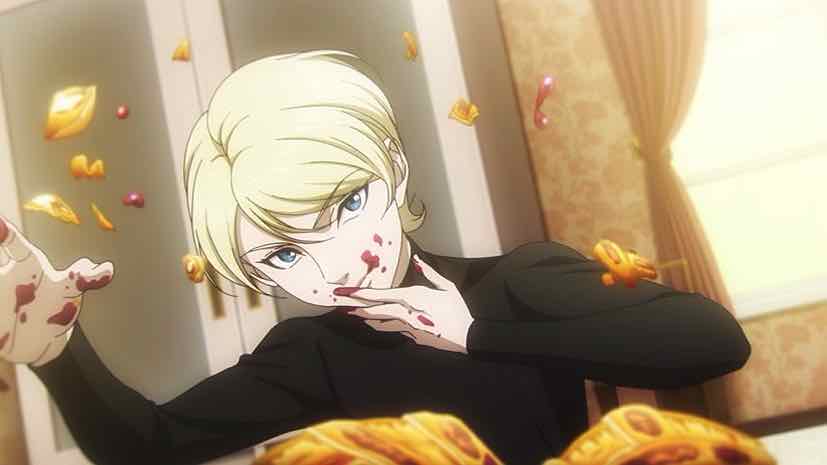
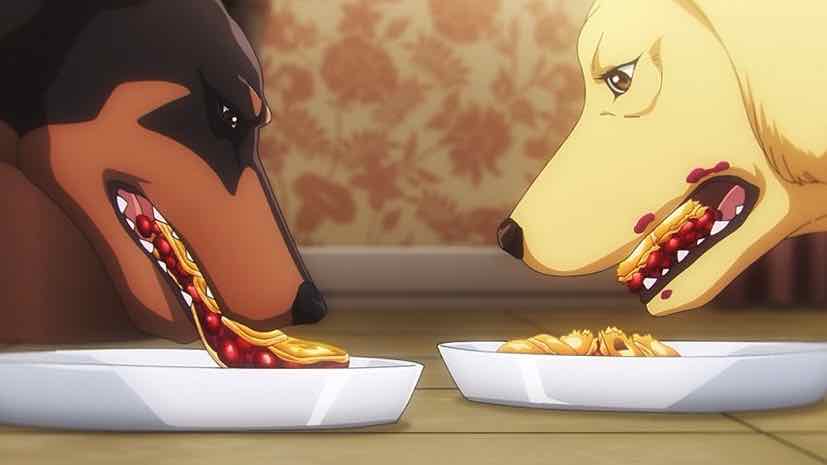
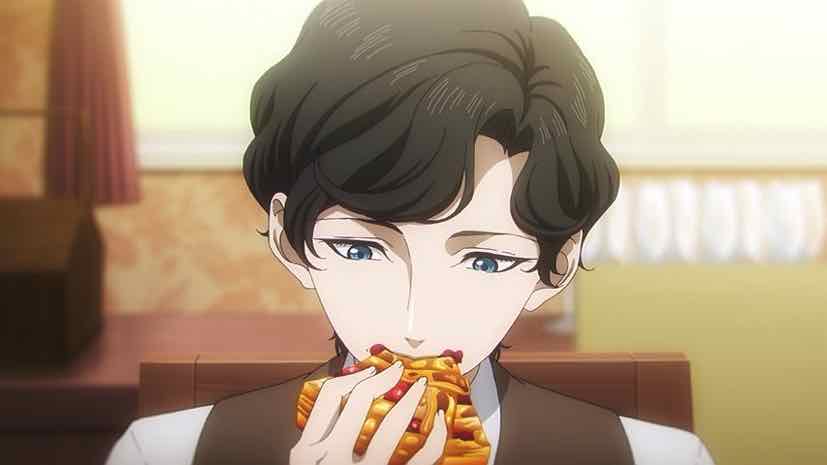
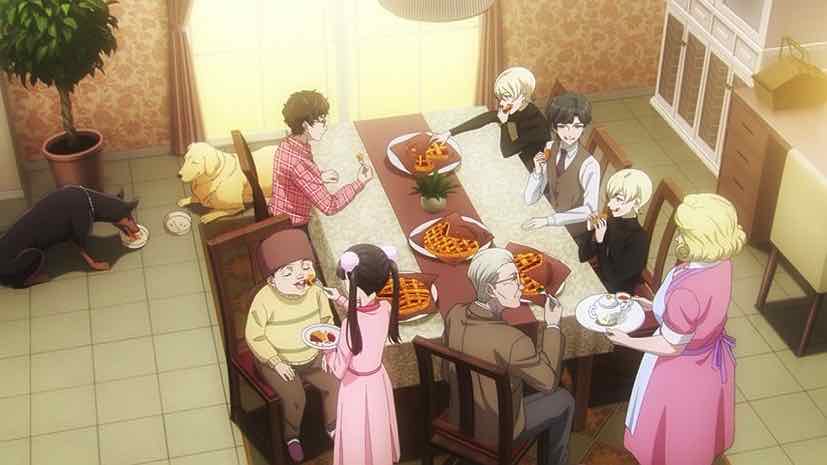
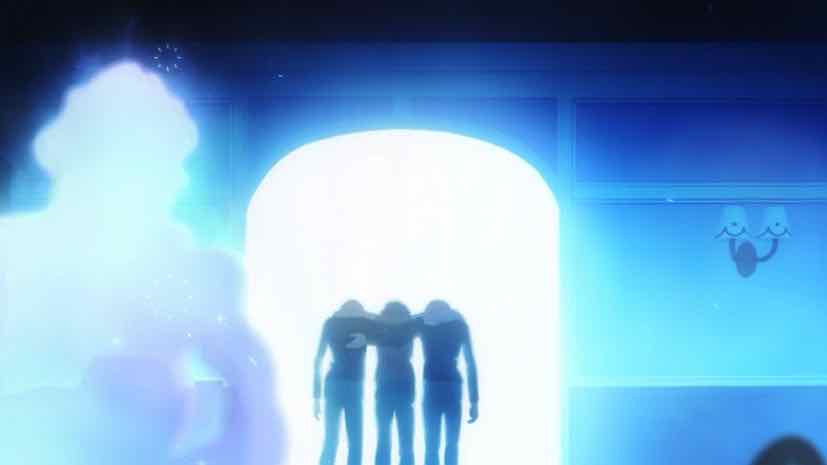
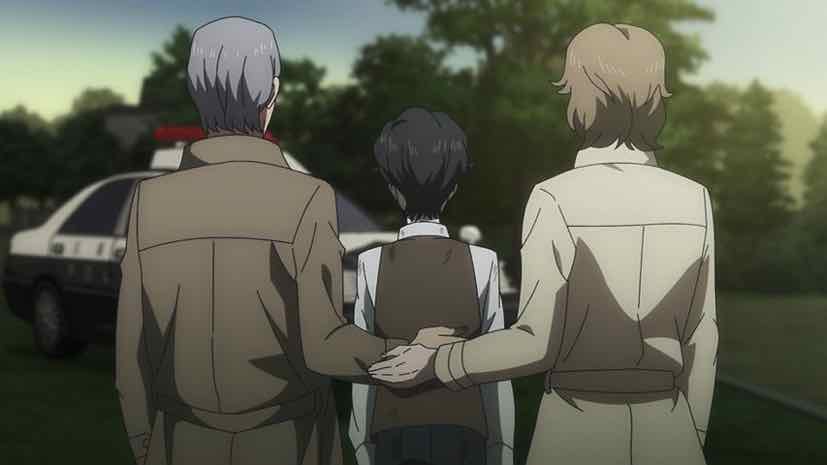
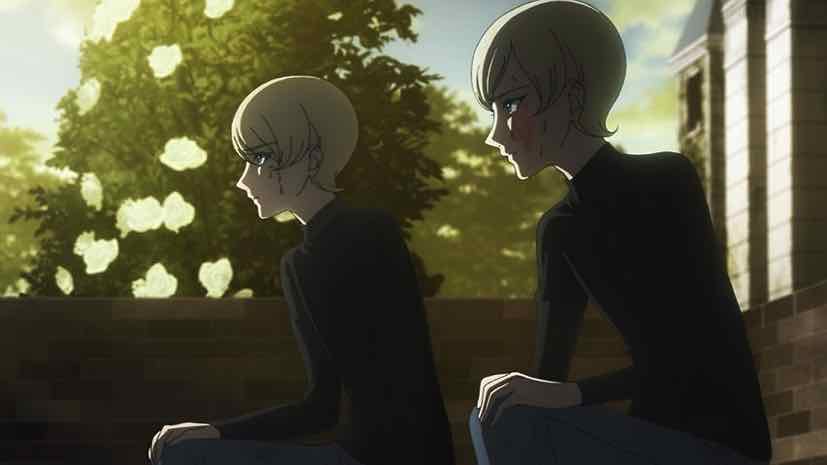
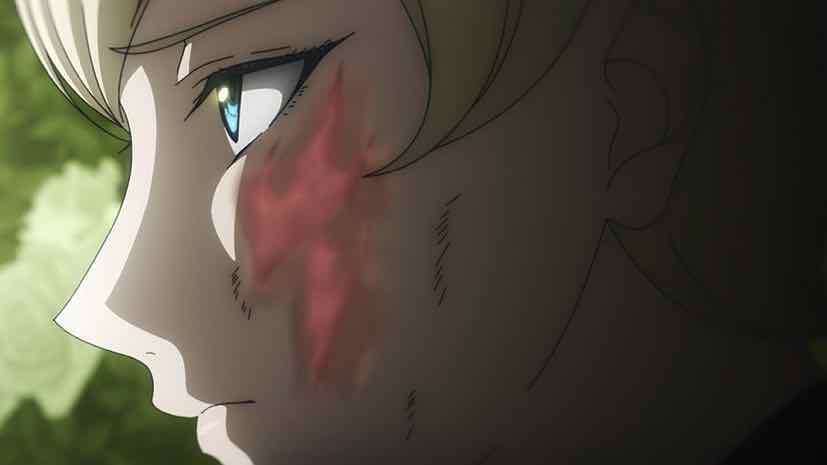

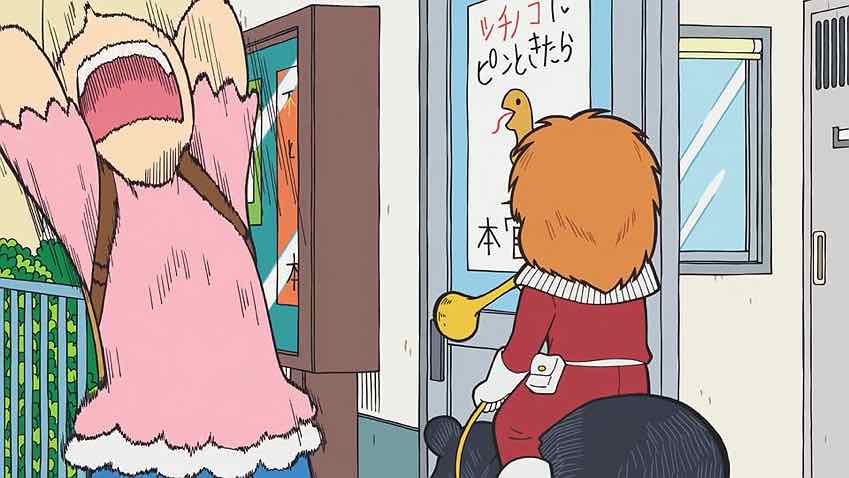
Nicc
December 20, 2023 at 9:38 amTrying to predict where the show will go has proven to be a foolish endeavor. I did see birdman Shunpei somehow coming to the rescue, but not like that. Or, having the ghost of Micchan show up? She’s been one heck of a supporting character, both in life and after.
While Eiji has set the house on fire, everybody is still locked in the baby room. The dad, Akira, somehow missed all of the signs that their perfect family life was anything but. It’s all been theatre. Maruta is trying to gnaw the door out of this way. The urgency to get out of the room greatly increases as smoke enters the room and then they realize that they house is on fire. Leaving it to beaver isn’t quite enough and the others struggle to break that sturdy door. Migi using his head doesn’t do it either. That’s when Shunpei makes his triumphant return and busts through. I was expecting a “Here’s Johnny!” when he broke through with the axe. They’re out of the room, but not out of the woods. I really liked the use of the blue fire throughout the sequence as it adds to the surrealism that you noted. The only way to go is up and to exit the same way that the boys went it. They’ll just have to jump over a yard that’s covered by barbed wire. Everybody eventually makes it out and Shunpei even includes the family dog in the rescue and doing a great impression of a phoenix.
But, they learn that Eiji is still inside and presumably to go down with the house. Now that the boys know the truth, it is indeed difficult to just leave him behind. The “Clair de Lune” sets the scene again and it’s Dali who makes the first move to enter the home. Eiji plans to die with his mom and reminisces about his life with Reiko so far. He has indeed lived a messed-up life and trying to live up Reiko’s ideal of perfection. It’s a serious scene as Dali enters, but there’s still some room for absurdity as Migi gets his buttocks burned. Dali will get his revenge by making Eiji live, which he agrees to.
It’s time to get out of the house again, but the collapsing house makes it difficult. Then, the ghost of Micchan shows up and starts doing some cleaning, giving the boys one more assist. The three brothers make out out of the house just as the authorities arrive. Eiji likes the idea of the three of them being together again, but the pie will have to wait. He turns himself in to the police and takes the blame for pretty much everything. That leaves Migi and Dali to go back to the Sonomaya and indeed, there’s going to be a lot to explain. Eiji will have to be taken to a psychiatric hospital and you’re right that he won’t be seen again in a while. The finale is on Christmas Day, which is when the young Migi and Dali first plotted their revenge against Origon Village. For the finale, I wouldn’t mind a sappy, happy Christmas ending.
blargnobia
December 21, 2023 at 6:54 amI’m not sure if this was intentional or not, but for me the funniest thing in this episode was Dari only starting to sympathize with Eiji *after* he set the house on fire and (although Dari only found out about this later) killed his mother. Everyone else in this show is so twisted I almost forgot Dari plotted to set his adoptive parents on fire and kill Eiji with a pumpkin. “You and I are similar” indeed.
Simone
December 31, 2023 at 4:31 pmDo I remember wrong, or Dari is inspired to pick up his fake name Sali for his female alter ego when he spots the name Salvador Dali on the spine of a library book? If that’s the case, the connection is as explicit as it gets.
Guardian Enzo
December 31, 2023 at 5:08 pmNot quite – it was J.D. Salinger.
Simone
December 31, 2023 at 9:52 pmOh you’re right, I misremembered! My bad. I also thought there was some kind of “Right and Left” pun going on? But of course puns can have multiple layers.
Guardian Enzo
December 31, 2023 at 10:28 pmTheoretically yes – right and left (migi and hidari). But since left is indeed hidari, why did Sano Nami reportedly romanize the name as “Dali”?